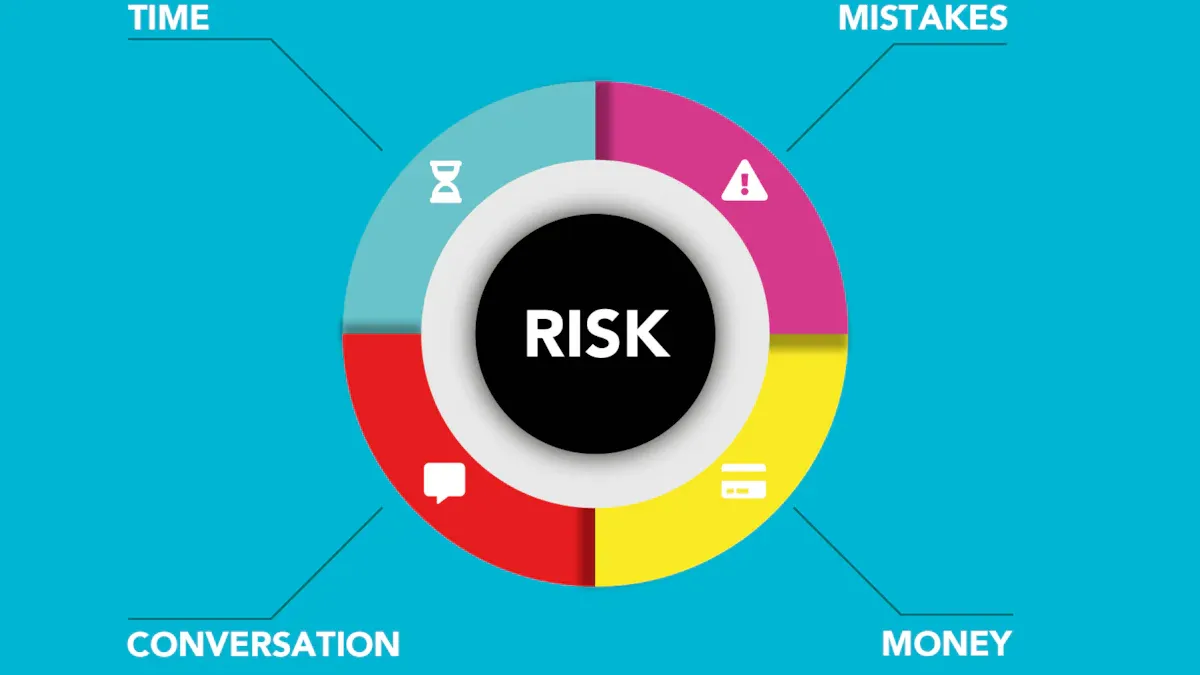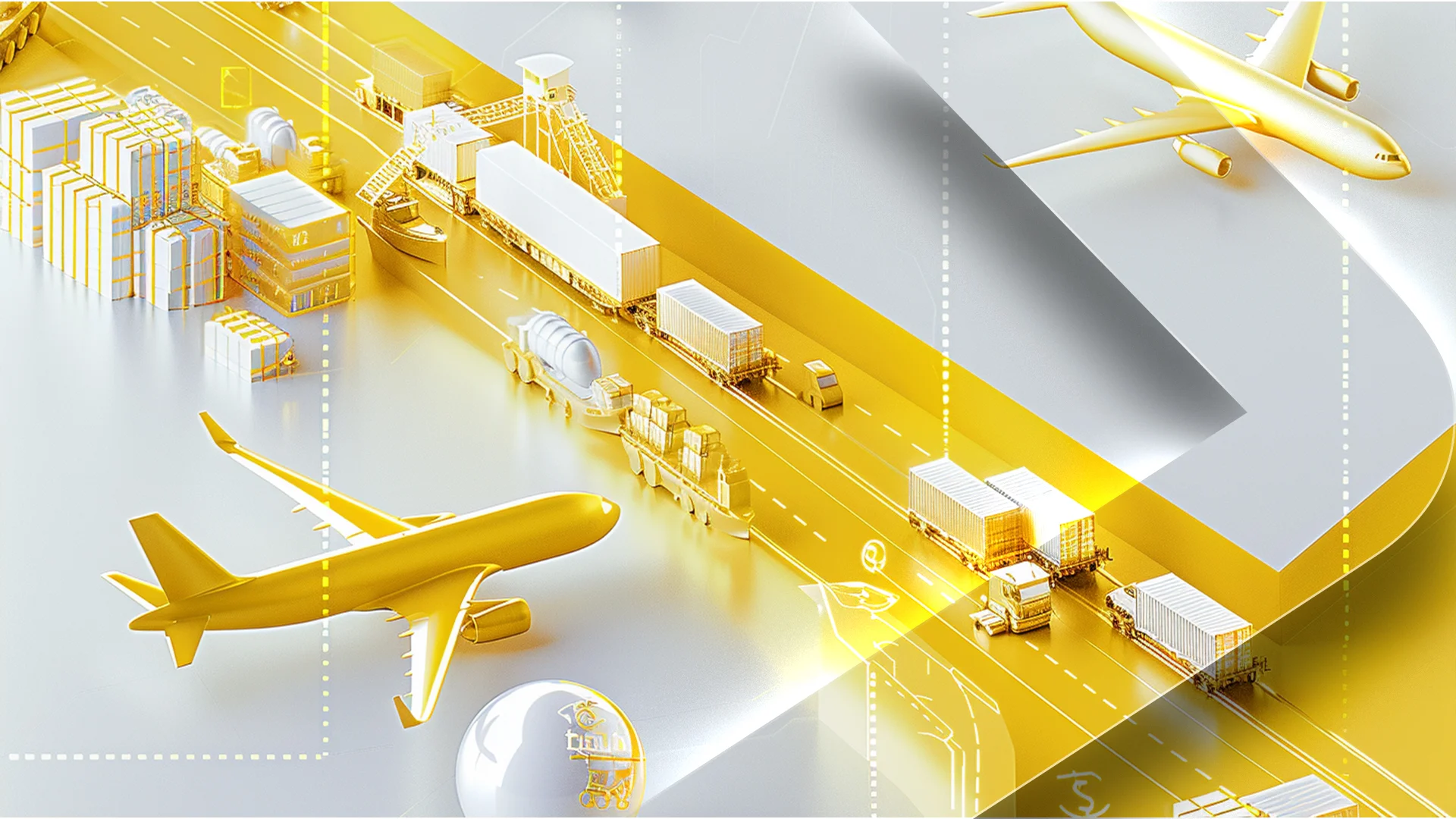Operationalizing Data Sovereignty for Risk Mitigation in Global Supply Chain Networks

Operationalizing data sovereignty stands as a critical step for companies that want to reduce risks in global supply chain networks. Over the past decade, global supply chains have grown more complex. Companies now face challenges such as advanced planning needs, shifting global trade patterns, and fragile, interconnected supply networks. Businesses must manage these risks while meeting new data regulations. Technology and intelligent solutions, like those from JUSDA, empower organizations to address these issues with greater transparency and control.
Key Takeaways
Data sovereignty means storing and handling data according to local laws, which helps protect sensitive information and reduce risks in global supply chains.
Using intelligent platforms like JUSDA’s JusLink improves data security, automates compliance checks, and provides real-time risk monitoring to prevent costly disruptions.
Mapping data flows clearly shows where data travels and who accesses it, helping companies spot risks and meet legal requirements.
Regular audits and strong vendor management keep supply chains secure and compliant, reducing the chance of data breaches and operational problems.
Balancing privacy with efficiency requires secure technology, clear policies, and teamwork among all supply chain partners to keep operations smooth and data safe.
Data Sovereignty and Supply Chain Risks

Risk Factors in Global Networks
Global supply chains connect many suppliers, manufacturers, and distributors across different countries. This complexity creates several risks, especially when companies must protect sensitive data. Some of the most common risks include:
Jurisdictional compliance challenges. Each country has its own data protection laws, such as GDPR in Europe or CCPA in California. Companies must follow these rules, even when they conflict.
Loss of competitive advantage. Unauthorized sharing or mishandling of proprietary data, like product recipes or unique processes, can harm a business.
Regulatory pressures. New laws can hold companies responsible for their suppliers’ mistakes, leading to heavy penalties.
Security vulnerabilities. Unauthorized access and data breaches can expose sensitive information.
Administrative burdens. Managing compliance, audits, and brand demands requires significant resources.
Traceability complexity. Companies must control sensitive data while meeting transparency requirements from brands and regulators.
Companies can reduce these risks by using traceability platforms that offer local data storage, strong access controls, encryption, and regular compliance updates.
Data sovereignty concerns make these risks even greater. Companies must store and process data within specific countries, which complicates cross-border operations. Multiple stakeholders handle sensitive data, increasing the chance of breaches. Strict data transfer rules and data minimization requirements add more steps and possible delays. These factors raise operational costs and create more security challenges.
Impact of Data Regulations
Data regulations like GDPR and CCPA have a major impact on global supply chains. These laws require companies to protect personal data, get clear consent, and respect data subject rights. Non-compliance can lead to large fines, such as up to €20 million or 4% of global revenue under GDPR, and up to $7,500 per violation under CCPA.
Organizations must:
Conduct risk assessments of third-party vendors.
Review data security policies and compliance status.
Implement strong security measures, such as encryption and access controls.
Monitor vendors and supply chain partners continuously.
The complexity of global supply chains, with many suppliers and cross-border data transfers, makes compliance difficult. Companies must balance compliance with efficiency. Poor data protection can lead to lost customers and damage to reputation. Effective risk management means setting clear data handling policies, using cybersecurity tools, and preparing for incidents. Data sovereignty remains a key factor in shaping these strategies.
JUSDA’s Approach to Data Sovereignty
JusLink AI Solution Overview
JUSDA addresses the challenges of data sovereignty in global supply chains through its JusLink AI solution. This platform provides a secure and intelligent foundation for managing sensitive supply chain data across borders. JusLink supports compliance with international data regulations by implementing robust security protocols and standardized data formats. The platform has cleared six-tier compliance audits for Fortune 500 clients, which demonstrates its commitment to data security and intellectual property protection.
JusLink enforces consistent data handling by standardizing formats across pan-Asia operations.
The platform integrates seamlessly with ERP and SAP systems, ensuring accurate and transparent data exchange among supply chain partners.
Real-time logistics synchronization keeps all parties updated and maintains secure data flows.
Audit readiness features and operational controls support ongoing compliance and security.
JUSDA’s proactive tax and legal teams help the company adapt to new markets, ensuring compliance-first expansion and localized services.
JusLink’s design reflects a deep understanding of the complexities involved in managing data across multiple jurisdictions. The platform’s features enable organizations to maintain control over their data, reduce compliance risks, and build trust with partners and regulators.
Real-Time Risk Monitoring
JUSDA’s JusLink platform elevates risk management by providing real-time monitoring capabilities. Ongoing monitoring is essential for maintaining regulatory compliance in supply chains. One-time assessments often miss changes in vendor risk profiles, such as shifts in financial health or cybersecurity posture. Automated tools within JusLink deliver continuous updates and real-time alerts, helping organizations stay ahead of sanctions risks and regulatory changes.
Industry research shows that continuous monitoring and real-time visibility are critical for managing modern supply chain risks. JusLink’s AI-driven risk control tower maps supply chain dependencies, tracks supplier risks, and issues early warnings. This approach enables companies to identify vulnerabilities quickly and respond with informed decisions. Real-time risk monitoring transforms supply chain management from a reactive process to a strategic advantage.
A recent healthcare network breach in 2024 highlighted the dangers of inadequate vendor oversight. Over three million patient records were compromised due to a third-party vendor’s failure to apply security patches. This incident led to significant financial penalties and regulatory scrutiny. Continuous monitoring and automated risk scoring systems, like those in JusLink, help organizations detect and mitigate risks before they escalate. These systems reduce the likelihood and impact of data breaches and regulatory violations.
JusLink leverages AI-powered compliance systems, supplier risk tracking tools, and IoT-enabled data collection. These technologies provide continuous visibility into extended supply chains. Automated alerts and data visualization tools enable immediate responses to compliance lapses, minimizing operational disruptions and penalties. Continuous monitoring supports faster incident response and reduces downtime, allowing organizations to manage risks proactively.

SMART JusLink
Supply Chain Management Solution
Operationalizing Data Sovereignty

Mapping Data Flows
Mapping data flows forms the foundation of effective data sovereignty in global supply chains. Companies must know where their data travels, who handles it, and how it is stored. This process starts with defining the scope and level of detail needed for each use case. Teams identify all entities, processes, and data stores that interact with sensitive information, including external partners and third-party vendors.
A structured approach helps organizations avoid confusion and ensures clarity:
Define the boundaries of your data flow. Decide which systems, partners, and regions to include.
List all entities and processes that collect, store, or share data. Include both internal teams and external partners.
Use clear diagrams or mapping tools to visualize how data moves through the supply chain.
Collaborate with stakeholders to review and validate the data flow map. This step helps catch errors and ensures everyone understands the process.
Scan the mapped data flows for security risks and compliance gaps.
Update the map regularly as new systems or partners join the network.
Tip: Automate data flow mapping with advanced tools to reduce errors and speed up risk detection. Platforms like JusLink use AI and IoT to provide real-time visibility and context, making it easier to spot vulnerabilities and compliance issues.
Companies should integrate data flow maps into their security management systems. This integration uncovers hidden risks and helps design better controls. Regular updates keep the map accurate as the supply chain evolves.
Ensuring Compliance
Ensuring compliance with data sovereignty laws requires a proactive and structured approach. Organizations must understand the rules in every country where they operate. They should also recognize that these laws often change, so staying informed is essential.
Best practices for compliance include:
Learn the data protection laws in each region, such as GDPR in Europe, CCPA in California, and PIPL in China.
Classify data based on sensitivity. Apply strong security controls to the most sensitive information.
Store data locally when required by law. Use cloud providers with proven compliance frameworks.
Secure data at every stage—during transfer, storage, and use. Use encryption, access controls, and regular security audits.
Set up clear governance policies for data classification, access, and lifecycle management.
Automate security management to handle complex environments and reduce manual errors.
Monitor workflows continuously and conduct regular audits to ensure ongoing compliance.
Prepare for incidents with backup and disaster recovery plans.
JUSDA’s JusLink platform supports these best practices with AI-driven features. JusLink automates compliance checks, monitors data flows in real time, and provides predictive analytics for risk management. The platform uses RFID and warehouse management systems to track inventory and data movement. Its AI capabilities help organizations spot compliance gaps quickly and respond to new regulations. JusLink also enables transparent collaboration between supply chain partners, building trust and reducing the risk of data mishandling.
Note: Many organizations struggle with compliance because they do not know where their data is stored or who can access it. JusLink’s real-time monitoring and automated alerts help companies maintain control and avoid costly mistakes.
By following these steps and leveraging intelligent platforms like JusLink, organizations can operationalize data sovereignty, reduce risks, and build resilient global supply chains.
Best Practices for Risk Mitigation
Regular Audits
Regular audits help organizations maintain strong security and compliance in their supply chain operations. Audits allow teams to check if their security controls and policies work as intended. Companies should follow a structured schedule to review different areas of compliance. The table below shows how often to audit key areas:
Compliance Area | Recommended Audit Frequency |
|---|---|
Cybersecurity Policies | Annually |
Data Encryption | Biannually |
Access Controls | Quarterly |
Incident Response Plan | Annually |
Audits help companies find gaps in their systems before problems occur. Teams can use the results to improve security measures and update policies. Regular reviews also keep organizations ready for new regulations and industry standards. Automated tools, like those in JUSDA’s JusLink platform, can make audits faster and more accurate. These tools track changes in real time and alert teams to any issues, reducing the risk of missed problems.
Tip: Schedule audits at the start of each quarter to keep compliance efforts on track and avoid last-minute surprises.
Vendor Management
Vendors play a key role in global supply chains. Managing them well reduces risks from data leaks, non-compliance, and operational disruptions. Companies should use clear criteria to evaluate vendors:
Define the data exchanged and its intended uses to prevent misuse.
Require vendors to submit regular reports on data handling and any security incidents.
Draft contracts with clauses that hold vendors responsible for violations.
Enforce data security standards, such as encryption and access restrictions, through contracts.
Ask vendors to maintain cybersecurity insurance to cover potential breaches.
Ensure subcontractors follow the same data protection standards.
Conduct third-party audits of suppliers and subcontractors to verify compliance.
Emphasize compliance with major data privacy regulations, including timely breach notifications.
Strong vendor management also means monitoring financial health, shipment tracking, and dependencies. Companies should broaden their supplier base and diversify sourcing strategies to avoid relying on a single source. Using advanced risk management software helps identify vulnerabilities early and keeps the supply chain resilient.
Overcoming Challenges
Cross-Border Data Transfers
Organizations face many hurdles when moving data across borders in global supply chains. Legal and technical barriers often slow down operations and increase costs. Companies must follow different data protection laws in each country. Some countries require that data stays within their borders, which means businesses need to build local storage and processing systems. This can be expensive and hard to manage.
Technical challenges also arise. Data can become exposed to less secure systems during international transfers. Companies need strong technology, such as secure networks and advanced encryption, to keep information safe. Trust becomes harder to maintain when laws change quickly or when data passes through regions with weaker protections.
Other important challenges include:
Designing flexible systems that meet many, sometimes conflicting, data residency laws.
Monitoring legal requirements as they change in each country.
Choosing vendors and cloud providers with clear data policies and region-specific services.
Managing encryption keys locally to protect data in each jurisdiction.
Keeping detailed records, such as data flow maps and audit trails, to prove compliance.
Addressing intellectual property and trade secret laws, which differ by country and affect how data can be shared.
Vendor contracts should clearly state how data is controlled, how breaches are handled, and how companies will work with regulators. These steps help reduce legal risks and keep supply chains running smoothly.
Balancing Efficiency and Privacy
Companies must find ways to keep supply chains efficient while protecting private data. This balance requires careful planning and the right technology. Businesses should start by understanding their goals and what customers expect. They can then build strong relationships with suppliers and monitor performance closely.
Real-time data analytics helps companies respond quickly to changes. Lean manufacturing practices reduce waste and improve speed. Flexible supply chains can adapt to new rules or sudden disruptions.
To protect privacy and keep operations smooth, organizations should:
Use secure systems with encryption, multi-factor authentication, and regular security audits.
Set clear policies for data privacy, train staff, and hold vendors accountable.
Encourage teamwork among staff, suppliers, and regulators to keep data safe and supply chains efficient.
Tip: Regularly review and update privacy policies and security measures. This keeps the organization ready for new threats and changing regulations.
By following these strategies, companies can protect sensitive information and keep their supply chains strong and responsive.
JUSDA Case Study
Smart Logistics Transformation
JUSDA has transformed global supply chains by integrating AI, cloud computing, and blockchain into its logistics platform. This smart approach gives manufacturers real-time visibility and control over their operations. The platform connects with ERP systems, allowing companies to track supplier performance and validate data instantly. AI-driven analytics help teams predict risks and avoid costly disruptions. For example, predictive models can spot supplier failures early, reducing production interruptions by over 30%.
The platform automates routine tasks such as purchase order processing and certificate validation. This automation cuts manual workloads by up to 70% and lowers operating costs by as much as 25%. Companies also benefit from optimized delivery routes, which save 10% to 20% on fuel costs. AI-powered demand forecasting and inventory planning reduce excess stock by 35% and prevent out-of-stock losses by 65%. These improvements make supply chains more efficient and resilient.
JUSDA’s use of blockchain ensures secure, tamper-proof records for every transaction. This technology builds trust among partners and supports compliance with international regulations.
Customer Success Story
Many leading manufacturers have achieved measurable results with JUSDA’s platform. For instance, BMW uses AI models to predict supplier issues with 86% accuracy, cutting production delays by 35%. Samsung Electronics has halved the time needed to select suppliers while improving quality. Companies like Unilever and Pfizer use AI to reduce fraud and improve contract compliance, showing clear gains in transparency and efficiency.
JUSDA’s AI-driven supplier scorecards provide real-time insights and tailored improvement plans. These tools help companies monitor compliance and drive continuous improvement. Logistics operations have seen transportation costs drop by up to 10% and delivery reliability rise by 20%. Automated procurement processes analyze data nearly 90% faster than manual methods, reducing costs by up to 45%.
JUSDA’s smart logistics platform empowers manufacturers to meet global standards, maintain transparency, and operate efficiently. The integration of AI, cloud, and blockchain technologies supports strong risk management and helps companies thrive in a complex, fast-changing world.
Future Trends in Data Sovereignty
Evolving Regulations
Regulations around data are changing quickly. Supply chain leaders now face new rules that require them to capture and report more information. For example, laws like the EU’s CBAM and CSDDD demand companies track environmental and social data, including Scope 3 emissions. These rules push organizations to use software platforms that share data in real time and provide predictive insights. Companies must also follow stricter privacy rules, especially when using AI tools.
Supply chains must map their networks to deeper levels, sometimes down to Tier 4 suppliers. This extended visibility helps companies meet compliance needs and manage risks. CEOs now see supply chain management as a top business risk. They invest in digital tools, supplier diversification, and workforce training to keep up with new regulations. Digital Twins and AI help companies visualize their supply chains and respond quickly to changes.
Note: Data is now the foundation of supply chain success. Companies break down silos and use unified platforms to make better decisions and stay flexible.
Technology Innovations
Technology is shaping the future of data sovereignty in supply chains. Sovereign AI and cloud solutions keep data within national borders, reducing the risk of foreign access and vendor lock-in. These technologies support industries like healthcare and finance by protecting sensitive information and ensuring compliance. Companies use hybrid cloud strategies to balance security and efficiency.
Modern data management platforms use AI and machine learning to improve data accuracy and spot risks early. Real-time sensor data and predictive analytics give companies a clear view of their operations. AI helps optimize inventory, warehouse tasks, and route planning. Federated AI and learning allow companies to share insights without moving data, which keeps information private and secure.
Organizations also invest in local talent and strong governance frameworks. These steps help them adapt to regional risks and regulations. By using these innovations, companies gain control, stay compliant, and build resilient supply chains.
Organizations that operationalize data sovereignty gain stronger control over sensitive information, detect risks earlier, and reduce supply chain disruptions. Intelligent platforms like JUSDA’s JusLink enable secure, real-time collaboration and support compliance with evolving regulations. To stay resilient, companies should:
Use advanced protection technologies
Conduct regular risk assessments
Industry experts expect a future where multi-cloud and sovereign cloud solutions balance security, compliance, and operational flexibility, helping supply chains adapt to global changes.
FAQ
What is data sovereignty in supply chain management?
Data sovereignty means a company must store and process data according to the laws of the country where the data originates. This protects sensitive information and ensures compliance with local regulations.
How does JUSDA’s JusLink platform help with compliance?
JusLink uses AI to monitor data flows, automate compliance checks, and provide real-time alerts. The platform helps companies follow global data laws and reduce the risk of violations.
Why is mapping data flows important?
Mapping data flows shows where information travels and who can access it. This helps companies find risks, improve security, and meet legal requirements.
What are the main benefits of real-time risk monitoring?
Real-time risk monitoring helps companies detect problems early, respond quickly, and avoid costly disruptions. It also supports better decision-making and keeps supply chains running smoothly.
Can companies use JusLink with existing systems?
Yes. JusLink integrates with ERP, SAP, and other supply chain systems. This allows companies to manage data and compliance without changing their current workflows.
See Also
Protecting Your Supply Chain From Potential Risk Factors
Implementing Sustainable Strategies To Manage Supply Chain Risks
The Importance Of Security Measures In Logistics Operations
Addressing Challenges Of Expanding Supply Chains Globally
Optimizing Supply Chains Through Effective Risk Management Practices
